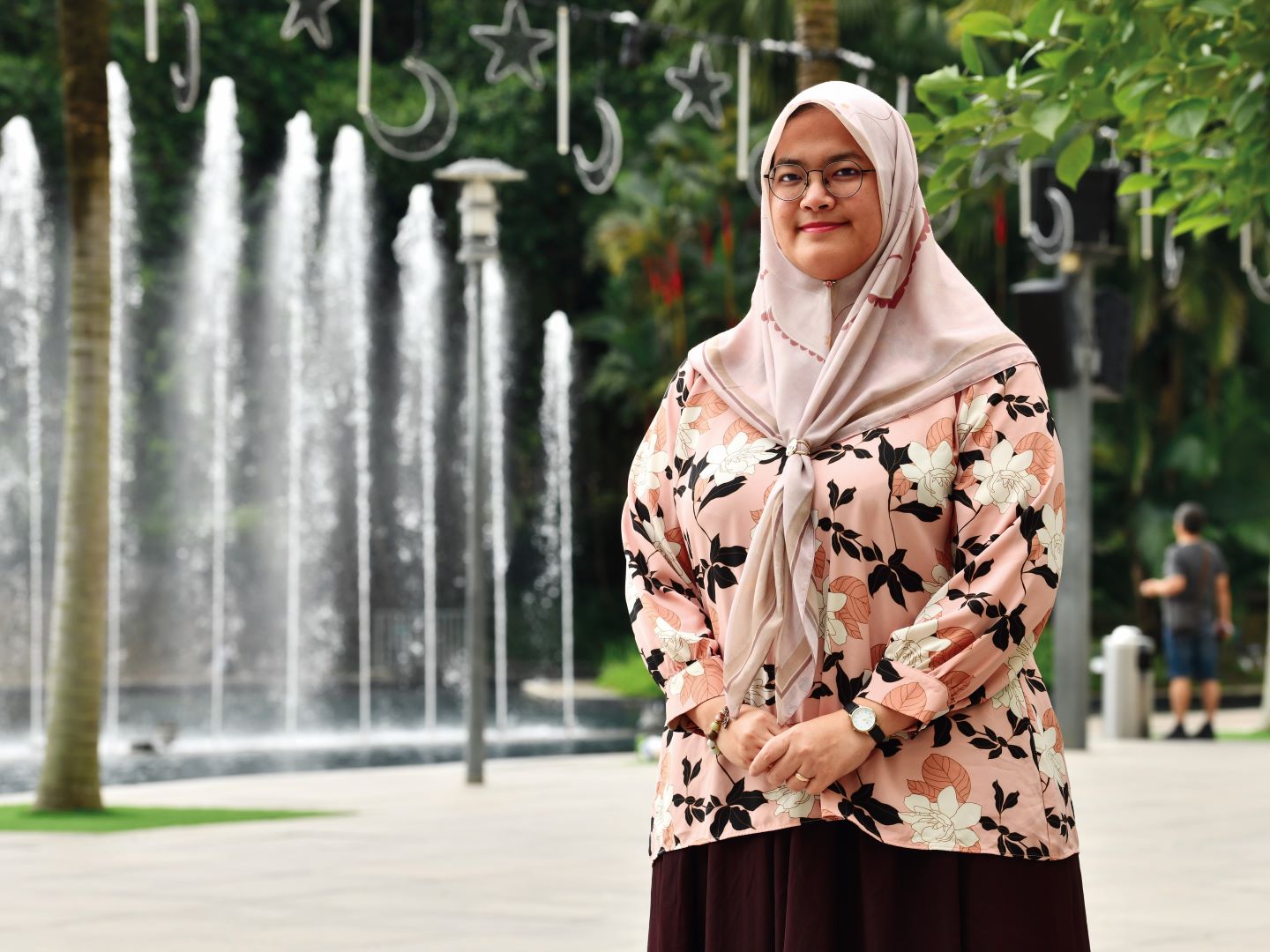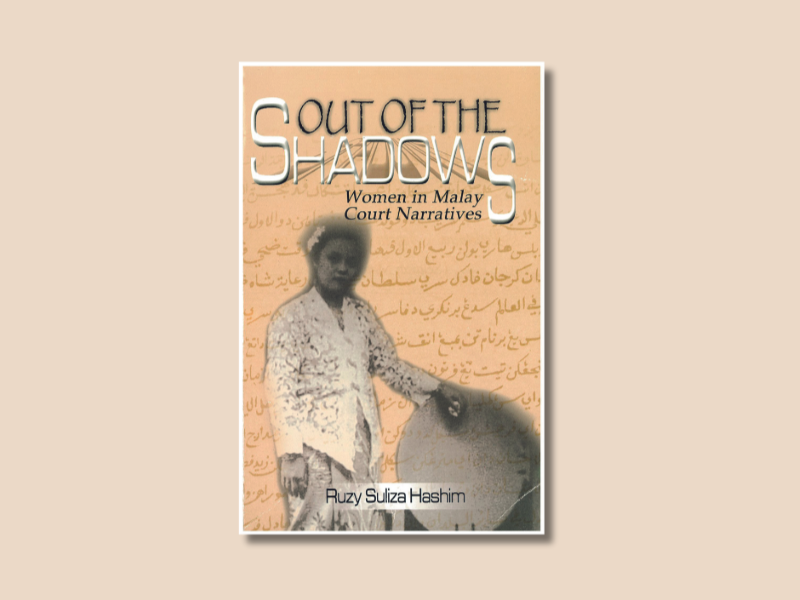
Rabiatul: I think it is time we acknowledge that power has always been something the royal women were used to and familiar with (Photo: Shahrin Yahya/The Edge)
When talking about the present, it is almost impossible to avoid subjects of the past. For scholars, history is the foundation of all theories and arguments, and the key to unravelling mysteries and puzzling events.
Researcher and PhD candidate Rabiatul Adawiyah Yusoff will be holding a discussion entitled “Royal Women, Royal Destiny: Female Perspective in Malay Court Narratives” to look into the varied roles held by women in bygone eras to make sense of their influence on traditional Malay society.
Pasir Mas, Kelantan-born Rabiatul studied law at Universiti Kebangsaan Malaysia. She had done two months of her pupillage when she decided that was not what she wanted to do for the rest of her life; her heart was in literature. She became an educator at a learning centre called Cosmotots-iqd and taught English literature for eight years.
“[When] studying English literature, we use a lot of Western texts by names such as Jane Austen, Charlotte Brontë and Charles Dickens. So in those years, I never developed an affinity for works grounded in Asia until Covid happened.
“As I did my master’s of arts in post-colonial literature in 2021, I realised Malaysia has a rich tapestry of narratives. But it is not always talked about because it’s not commercialised and mainstream.”
Rabiatul’s passion for the subject grew and she is now entering year two of her PhD in post-colonial literature in English. Her research focuses on the memoirs of female freedom fighters, and revolves around Malay women and their narratives. How did she come to examine royalty then?
“If you want to study traditional Malay society, you would inevitably end up learning about royalty because they were the ones who had the privilege to document their history, as narrated about by court writers. Commoners would not be considered unless they were slaves or servants in the royal circle.”
“Royal Women, Royal Destiny” will be based on theories from a book by Rabiatul’s professor, Ruzy Suliza Hashim, called Out of the Shadows, Women in Malay Court Narratives.
“My professor was studying Malay royal women in traditional literature and identified them as more than just decorations or princesses in a gilded cage. They actually had a lot of say in how they manoeuvred their power. I read it and it changed my life.”
untitled_design_8.png

Rabiatul aims to uncover the stories of 11 women — Tun Kudu, Dang Bunga and Dang Bibah, Puteri Gunung Ledang and Raja Tua (all from Melaka), Encik Apung and Tengku Tengah (Johor), Puteri Saadong (Kelantan), Siti Sarah (Perak), Tengku Ampuan Mariam (Terengganu) and Tengku Safiah (Lingga, Indonesia).
While their stories — moments of happiness, sorrow and betrayal — have been recorded in print, there are limitations. “Sometimes, they never had their own dialogue, so they couldn’t speak for themselves. Even worse, they were there, but their role was restricted to being a wife, mother or chattel. They never seemed to have any agency.
“So what my professor did was read between the lines. This is where literary analysis comes in. She did a lot of comparisons to discover intertextuality from multiple sources.”
A woman may be described as a villain or femme fatale in one narrative, but in another, she may be favourably presented as a good, devoted person. “These contradictions of accounts teach us to always look at things in different contexts and not paint certain historical figures in one dimension.”
The portrayal of women in history has always been complex, Rabiatul observes. “I say so because the mainstream narrative is that queens and princesses are very prim and proper. But if you dig a bit more, the drama revolving around these characters is out of this world, especially when we look at women who had the power to decide the fate of a kingdom.”
During the talk, she will delve into the lives of princesses and prominent ladies from perspectives that differ from what the public may already know. “We always think of the royals as people perched on their throne, but there is this intense manoeuvring of power that we are not aware of, since the beginning of time.
“Their destiny was different from commoners’ as the person they married would determine the fate of their kingdom. The relationship could consolidate power, provide legitimacy or bring peace to two nations.”
This is the point Rabiatul likes to bring up. “Even though they could not rule, they had really important roles to play in traditional Malay society. Within such limited circumstances, they strove to do their best. We never really associate power with traditional women, but I think it is time we acknowledge that power has always been something the royal women were used to and familiar with.”
While female characters are not well represented in age-old literature, “the increasing number of female authors is our saving grace. This may be a controversial take but I do believe that only women can write about women’s lived experience in a concrete manner”.
As she is currently studying well-known figures such as Tan Sri Aishah Ghani, Shamsiah Fakeh and Khatijah Sidek, who wrote their memoirs, Rabiatul notes the significance of documenting and writing down our own story “because only we know why we did this and that. If we were forced into certain circumstances, why did we go along? And how did we fight?”
The 33-year-old sees the importance of scholars like her continuing to have discussions about women from the past to bring about change in the present and future. “I will keep on digging up history and never stop talking about those women.”
She hopes that “Royal Women, Royal Destiny” will encourage and amplify conversations about them and their roles in society. “Even though I’m talking about the royals, I hope my audience will be able to relate to them because I think a lot of their experiences are very universal.”
‘Royal Women, Royal Destiny: Female Perspective in Malay Court Narratives’ will be held at Netaji Subhash Chandra Bose Indian Cultural Centre, Kuala Lumpur, on May 3, 8pm. Contact (019) 333 1092 or (03) 2276 3492 for more information.
This article first appeared on Apr 29, 2024 in The Edge Malaysia.


